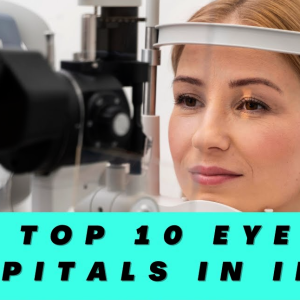Introduction: Experiencing excessive hair loss can be distressing, but understanding the underlying medical reasons can provide clarity and guidance towards effective solutions. In this article, we delve into the ten most prevalent medical causes of hair fall, shedding light on each condition and offering insights for those seeking answers.

- Hormonal Imbalance: Hormonal fluctuations, particularly imbalances in thyroid hormones, can disrupt the hair growth cycle, leading to excessive shedding. Conditions like hypothyroidism or hyperthyroidism can contribute to hair loss, emphasizing the importance of hormonal balance for healthy hair.
- Nutritional Deficiencies: Poor nutrition, especially deficiencies in vital nutrients like iron, zinc, and vitamins A, C, and D, can compromise hair health. Inadequate intake or absorption of these nutrients can weaken hair strands, making them more prone to breakage and fall.
- Telogen Effluvium: Stressful events, such as surgery, illness, or significant weight loss, can trigger a condition called telogen effluvium. This condition disrupts the hair growth cycle, pushing more hair follicles into the resting phase and resulting in increased hair shedding after a few months.
- Alopecia Areata: Alopecia areata is an autoimmune condition where the body’s immune system mistakenly attacks hair follicles, leading to sudden hair loss in small, round patches. While the exact cause is unknown, genetics and environmental factors are believed to play a role.
- Androgenetic Alopecia: Commonly known as male or female pattern baldness, androgenetic alopecia is a hereditary condition characterized by gradual thinning of hair, typically at the crown or temples in men and diffuse thinning in women. Hormonal factors and genetics contribute to its development.
- Scalp Infections: Fungal infections like ringworm or bacterial infections of the scalp can cause inflammation and damage to hair follicles, resulting in hair loss. Proper diagnosis and treatment of these infections are crucial for restoring scalp health and preventing further hair fall.
- Medication Side Effects: Certain medications, including chemotherapy drugs, blood thinners, antidepressants, and beta-blockers, may list hair loss as a potential side effect. If experiencing excessive hair fall while on medication, consulting a healthcare professional for alternative options or management strategies is advisable.
- Autoimmune Diseases: Autoimmune disorders like lupus or rheumatoid arthritis can impact hair follicles, leading to hair loss as a secondary symptom. Managing the underlying autoimmune condition is essential for addressing associated hair fall.
- Polycystic Ovary Syndrome (PCOS): PCOS is a hormonal disorder common among women of reproductive age, characterized by irregular periods, ovarian cysts, and hormonal imbalances. Elevated levels of androgens in PCOS can lead to hair thinning and excessive hair fall, necessitating comprehensive management by healthcare providers.
- Scalp Conditions: Various scalp conditions like seborrheic dermatitis or psoriasis can cause inflammation and itching, leading to scratching and hair damage. Treating the underlying scalp condition with medicated shampoos or topical medications can help alleviate symptoms and reduce hair fall.
Conclusion: Excessive hair loss can stem from a multitude of medical reasons, ranging from hormonal imbalances to autoimmune conditions and scalp disorders. Understanding these underlying causes is crucial for implementing targeted treatments and achieving optimal hair health. If experiencing persistent or severe hair fall, consulting a healthcare professional for proper diagnosis and management is paramount. By addressing the root cause, individuals can embark on a journey towards healthier, fuller hair and improved well-being.





